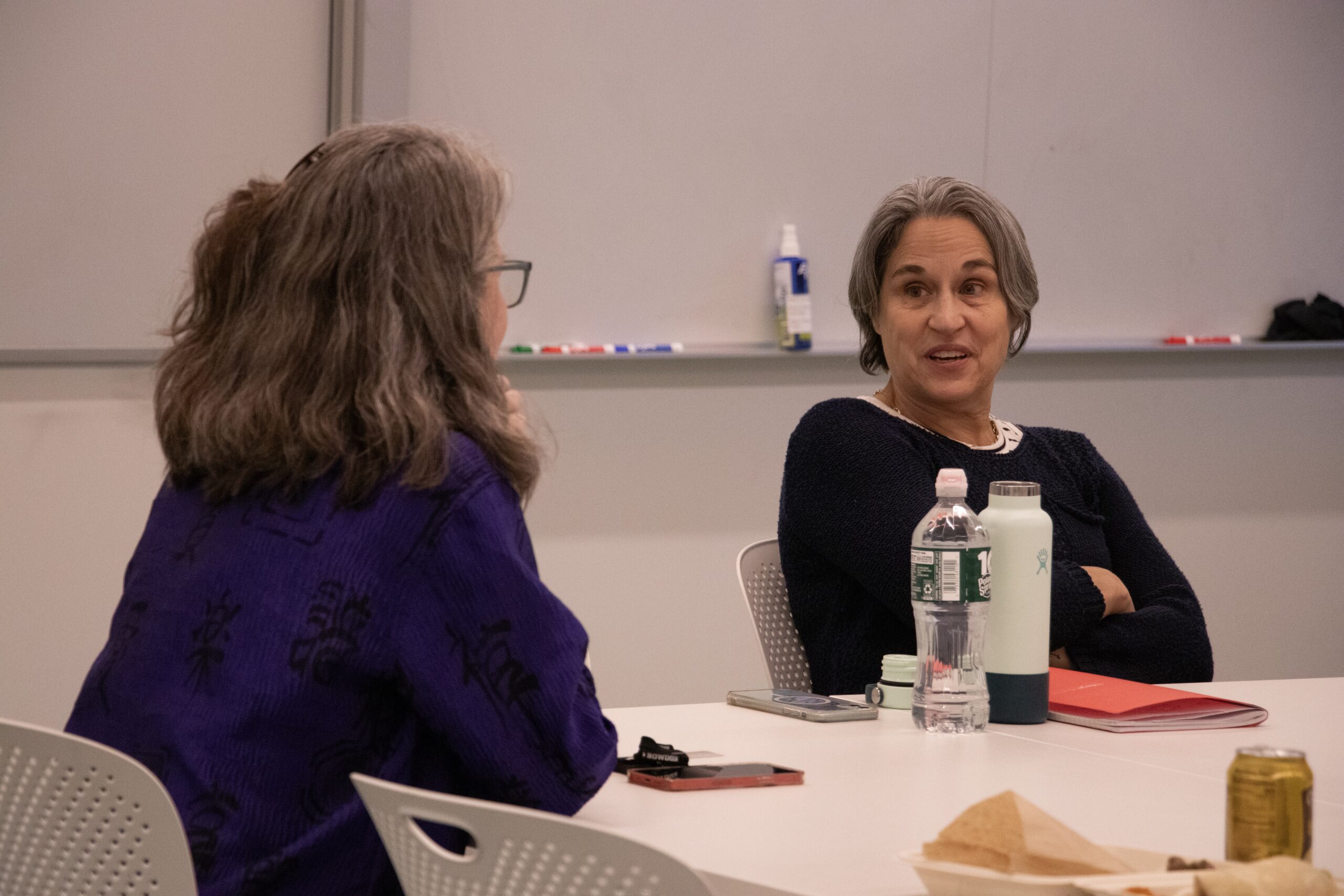Kate Dempsey ’88 talks public service and environmental conservation
May 2, 2025
 Michael Solano
Michael SolanoOn Monday, Kate Dempsey ’88, the Maine State Director of The Nature Conservancy, a global environmental advocacy group, visited campus to discuss her career and encourage Bowdoin students to pursue their passions. At the event, held in Mills Hall, attendees spoke with Dempsey about her career experiences.
Dempsey began by discussing her time at Bowdoin, noting that campus was much more conservative and Greek life-centered in the 1980s with many students geared towards traditional career pathways. She found it difficult to figure out her path after college.
“There seemed to be one path that everyone was on, and I definitely was not on it,” Dempsey said.
Dempsey went to work for Habitat For Humanity in Kansas City, Mo., learning how to work with people from different backgrounds to achieve common ends. After moving to Washington, D.C. to work as a lobbyist for a Quaker organization, she attended Tufts University for graduate school, studying urban and environmental policy.
At Tufts, Dempsey took up a newfound interest in the environment at its intersection with her previous work in urban studies.
“I was steadfastly an urban-focused person and did not think the environmental world or movement had anything to do with me,” Dempsey said. “And, again, [it’s] hard to imagine what it was like in the 90s, but basically every debate was [about] spotted owls or jobs. It was about division.”
At Tufts, she learned to bridge the divide between caring about the environment or the economy and how environmental issues affect urban areas like the ones she had worked in. After working for a couple of years in public health, her studies led her to congressional work. She worked for Congressman Marty Meehan in Mass. before coming to Maine to work for another Congressman, Tom Allen. From there, she became the first federal lobbyist for the Maine chapter of The Nature Conservancy. In 2016, she became the state director, bridging science and policy while working to manage the effects of climate change in Maine and conserve its forests, rivers and ocean.
Discussing the current political scene, Dempsey described the progress made for environmentalism under the Biden administration and her dismay at the vast rollback of funding and environmental protections under the new Trump administration. She explained that the Biden administration’s Inflation Reduction Act, the largest investment in climate change in U.S. history, created heat pump programs for Maine and the Penobscot Indian nation and more inland and coastal climate resilience.
“Climate is in everything, or environmental policy, if you are truly integrative, is in everything,” Dempsey said. “So the genius of those bills and the [Biden] administration was their understanding that climate was going to affect everything from the Department of Defense to agriculture.”
Dempsey explained how changes by the Trump administration have real impacts in towns like Brunswick. She also noted the worldwide environmental threat from the administration’s funding cuts to the United States Agency for International Development. Keeping environmental protections and funding intact are key to The Nature Conservancy’s fight for the environment.
Dempsey emphasized the importance of having a broad spectrum of environmental advocates, from community organizers to advocacy groups, and stressed the effectiveness of having many voices in recent policy shifts.
“What we’re focused on right now is trying to bring as many voices from the ground into Washington. Fishermen’s stories, farmers’ stories, construction workers’ stories,” Dempsey said. “We’re trying to use those stories … to show Congress that it’s their constituents that will be most impacted.”
Throughout the talk, Dempsey advised students in the audience on their post-graduation paths. Dempsey encouraged her audience of public servant hopefuls to persevere and find their calling.
“It’s a really hard time to be graduating from college, I’m not gonna lie, and I do believe paths will open, even as it feels really scary,” Dempsey said. “The worst thing is for your voices to be quieter right now.”
Attendee Camille Beaulieu ’25, an environmental studies and gender, sexuality and women’s studies major, found the talk interesting and insightful.
“[Dempsey has] inspired me to look more at the role of places like the Conservation Law Center because that’s not really a path I have considered for myself, but it’s definitely an important part of that ecosystem,” Beaulieu said.

Comments
Before submitting a comment, please review our comment policy. Some key points from the policy: